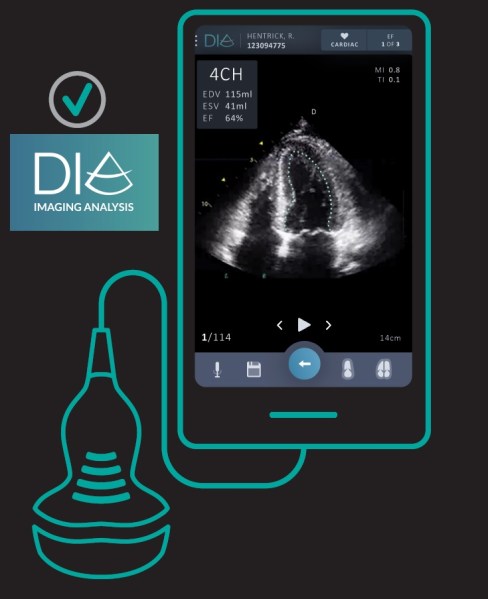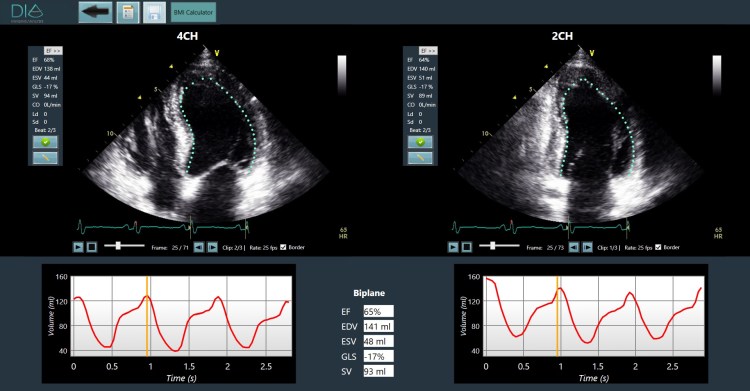Watch all the Transform 2020 sessions on-demand here.
Ultrasound scanners are good for more than just in-the-womb snapshots of soon-to-be-born babies. Their high-frequency waves’ ability to penetrate the skin and capture soft tissue structures make them ideal for noninvasive imaging of the gallbladder, kidney, pancreas, and liver diseases, and for arterial blood flow measurements that can detect clots and other blockages. And when you add artificial intelligence (AI) to the mix, they become even more powerful.
Beersheba, Israel-based Dia Imaging Analysis, an AI health care startup that develops automation tools for ultrasound scanners, today announced a $5 million funding round led by Connecticut Innovations, Defta Healthcare, and the Israeli government’s Innovation Authority.
It’ll use the new capital to extend its portfolio, grow its core team of 20 employees, and build out support teams in the U.S., Europe, and Asia to position itself for growth in the $5 billion ultrasound market.
“Ultrasound has a lot of challenges,” CEO and cofounder Hila Goldman Aslan told VentureBeat in a phone interview. “The position of the ultrasound during the procedure [can] affect the quality of the images, and there’s a lot of variability between how physicians are using it.”
June 5th: The AI Audit in NYC
Join us next week in NYC to engage with top executive leaders, delving into strategies for auditing AI models to ensure fairness, optimal performance, and ethical compliance across diverse organizations. Secure your attendance for this exclusive invite-only event.

Above: A diagram illustrating Dia’s platform.
Dia’s software solution, which is optimized for small and handheld ultrasound scanners, solves those problems with the help of proprietary machine learning algorithms. They analyze scans and detect patterns in real time, mimicking the way the human eye identifies borders and motion.
It’s designed to integrate with existing health care platforms, and it’s on-premises and offline — it doesn’t need to connect to the internet or cloud infrastructure. That’s important, Aslan said, in “point of care” settings like intensive care units, emergency rooms, and ambulances, where connectivity is at a premium.
“We’re not trying to replace doctors — we’re trying to help them understand what they’re seeing on the screen,” Aslan said.
The company’s first product performs echocardiography, and it has been cleared by both the U.S. Food and Drug Administration and European health regulators.
In 2017, Dia signed a multiyear, nonexclusive licensing and professional services deal with GE Health, and in March entered into a collaborative agreement with Google Cloud to make its analysis tools “accessible from anywhere.” It’s also collaborating with Neusoft Medical Systems, and has reference sites in medical centers at Yale, Mount Sinai, Rush University Medical Center, the University of South Florida, and the University of California San Diego.
Dia’s other investors include China’s Shengjing group, Israeli VC fund AltaIR Capital, and CE Ventures.


